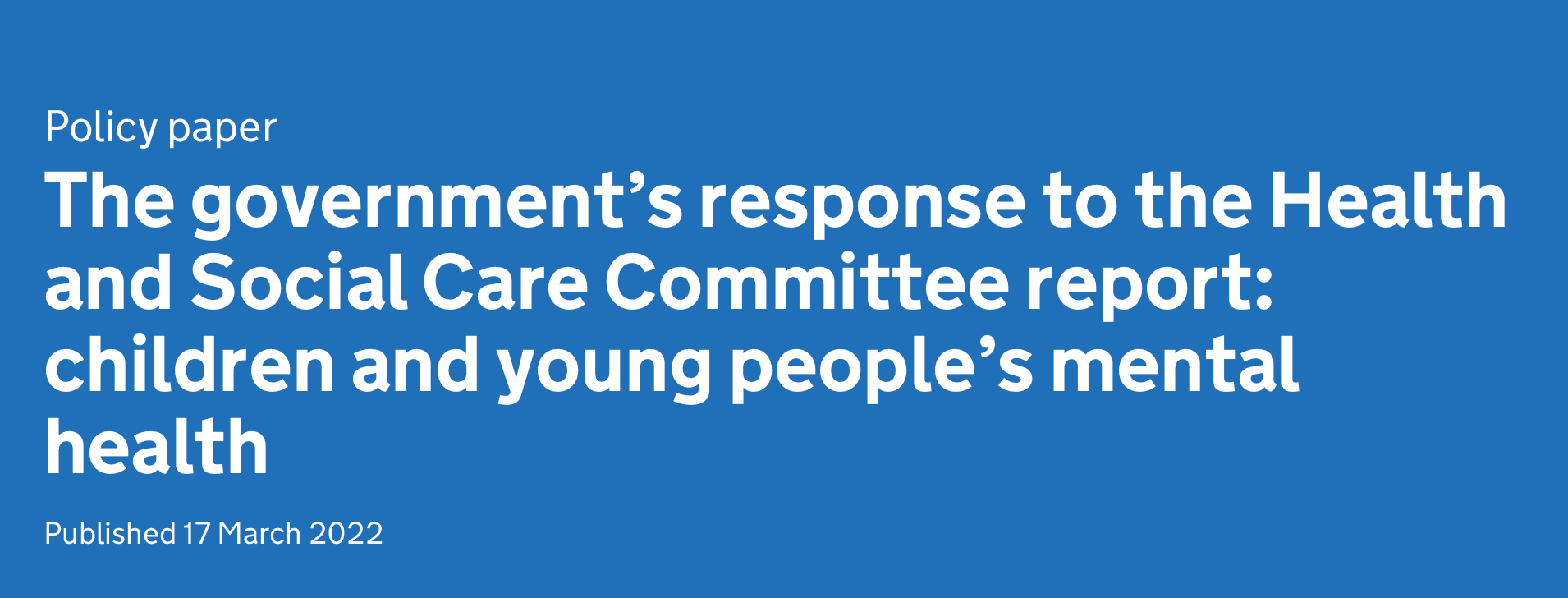
6. The government and the NHS remain committed to continuing to increase access, reduce waiting times, and improve outcomes and experience in mental health support for children and young people.
7. Despite the challenges the global pandemic has presented for children and young people, families, and services, there has been consistent delivery against the ambitious commitments the government has made.
8. As set out in the NHS Long Term Plan (NHS LTP), by the financial year (FY) 2023 to 2024, at least an additional 345,000 children and young people aged 0 to 25 will be able to access support via NHS-funded mental health services and school- or college-based mental health support teams (MHSTs). Over the coming decade the goal, subject to resources, is to ensure that 100% of children and young people who need specialist care can access it.
9. The NHS exceeded the 5 Year Forward View for Mental Health commitment for 70,000 additional children and young people accessing mental health services, more than a year early. Access continues to increase, with record numbers in contact with NHS-funded mental health support.
10. The Department of Health and Social Care (the department) is aware that the pandemic posed significant challenges to children and young people’s sense of wellbeing with data showing the prevalence of mental health issues in children and young people has increased. For those with a mental health condition, children and young people’s mental health services remained open, offering digital and remote access to maintain support, and accepting new referrals.
11. The department is aware that there has been an increase in demand for access to eating disorder inpatient services, due to the rise in the number of acute presentations seen across regions as the country came out of the first and second lockdowns.
12. Since 2016, extra funding is going into children and young people’s community eating disorder services every year, with £53 million per year from FY 2021 to 2022. This extra funding will enhance the development of more than 70 new or improved community eating disorder teams covering the whole of the country.
13. The department has also introduced the first waiting time standard for children and young people eating disorder services so that 95% of children with an eating disorder will receive treatment within one week for urgent cases and within 4 weeks for routine cases.
14. The government remains committed to the proposals set out in its response to Transforming children and young people’s mental health: a green paper. To support recovery from the pandemic, the department announced in March 2021, an additional £79 million funding to significantly expand children and young people’s mental health services. Part of this funding means an additional 112 MHSTs are now in training, and the total number will reach 399, covering an estimated 3 million children and young people (around 35% of pupils in England), by 2023.
15. As well as increasing the coverage of MHSTs in schools and colleges, this additional funding will also allow around 22,500 more children and young people to access community health services, and 2,000 more children and young people to access eating disorder services, than the original commitment in the NHS LTP.
16. The department also remains committed to working with the Department for Education to provide early intervention and mental wellbeing support in and around education settings to help prevent poor mental wellbeing from becoming a developed mental health condition.
17. To support schools and college staff to deal with children and young people experiencing additional pressures created by the pandemic – including trauma, anxiety, or grief – the Department for Education has announced £17 million to improve mental health and wellbeing support in schools and colleges, part of government’s commitment to build back better for every young person.
18. The department also plans to launch a public discussion paper later this year to inform the development of a new longer term mental health strategy. This will set us up for a wide-ranging and ambitious conversation, both within and beyond government and the NHS, about potential solutions to improve mental health and wellbeing.